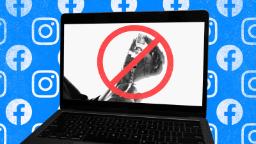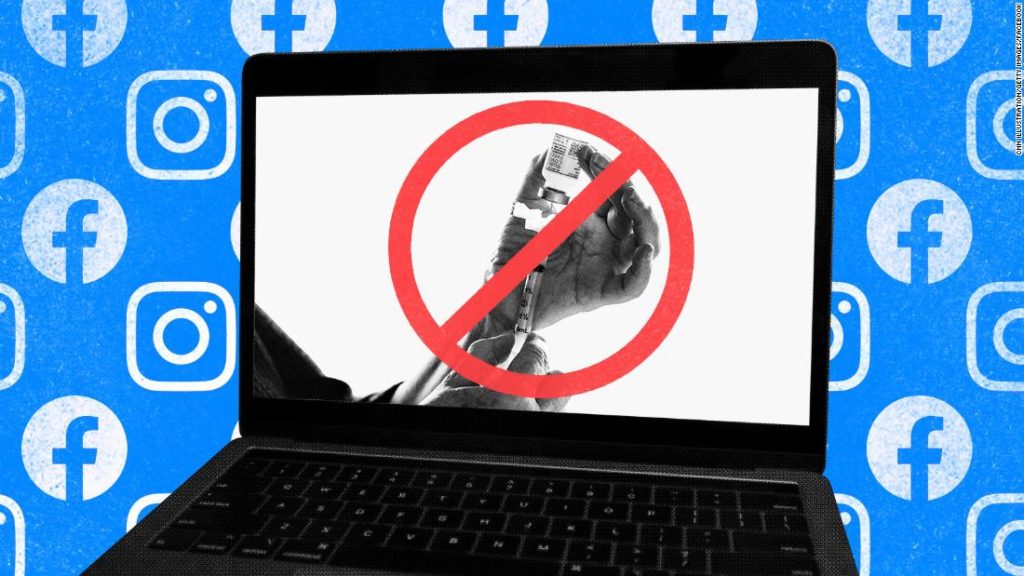
Four of the top 10 search results for “vaccine” on Facebook-owned Instagram were for anti-vaccination accounts, including “vaccinetruth,” “vaccinefreedom,” “antivaxxknowthefacts,” and “cv19vaccinereactions,” according to a series of searches conducted by CNN Business from multiple different Instagram handles beginning two weeks ago.
Shortly after, Instagram updated its search interface on mobile devices to showcase three credible results, including the CDC’s account, followed by a “See More Results” prompt. Users who click on that option are then shown a number of anti-vaccination accounts, in what is arguably the digital equivalent to shoving the mess in a bedroom under the bed.
Some of those accounts have amassed sizable followings, raising the question of whether Instagram suggesting them as a top result for users simply seeking out vaccine information helped them grow an audience. The “cv19vaccinereactions” account, which is devoted to documenting claims of adverse reactions to the vaccine, boasts more than 77,000 followers. The account often shares unsubstantiated reports and insinuates unproven links between people getting the Covid-19 vaccine and major health events, including a stroke or a miscarriage.
The fact that some of this anti-vaxx content continues to hide in plain sight on the platforms highlights a controversial distinction in Facebook’s approach: A company spokesperson says Facebook distinguishes between vaccine misinformation specifically, which it does crack down on, and posts that express a more general anti-vaccine sentiment, which it allows on the platform.
Public health experts have said they fear misinformation about Covid-19 vaccines and anti-vaccination content generally on social media could lead to people declining to get the shot. “If they’re scared away by falsehoods perpetuated through social media, we’ll have a real problem of getting out of this pandemic,” said Dr. L.J Tan, chief strategy officer of the Immunization Action Coalition (IAC).
Joe Osborne, a Facebook spokesperson, said the company has been working to “reduce the number of people who see false information” about vaccines and it’s trying to do “more to address other misleading vaccine content that falls outside of these policies.”
Osborne added that the company removes claims about the Covid-19 vaccine that have been debunked by public health experts and adds labels and reduces the distribution of other misinformation determined to be false by its third-party fact-checking partners.
When searching for the word “vaccine” on Facebook’s groups feature last week, three of the top 20 results surfaced by the platform led to groups promoting anti-vaccine content, including groups called “Say No Covid 19 Vaccine,” “COVID-19 Vaccine Injury Stories” and “Vaccine Talk: A Forum for Both Pro and Anti Vaxxers” — which has more than 50,000 members. The list fluctuates. A few days later, none of these groups were in the top 20, but results 18 through 20 pointed to groups discussing side effects of the vaccine or adverse reactions. Scrolling down further, it was easy to find other anti-vaxxer groups in the search results, including one titled “Unvaccinated and Thriving,” which makes widely and consistently debunked claims in its description linking vaccines with autism and other disorders and diseases. It’s unclear what powers Facebook’s search recommendations and why the results change day to day. Facebook did not offer a clear explanation after repeated requests for comment.
Dr. Wafaa El-Sadr, a professor of epidemiology and medicine at Columbia University’s Mailman School of Public Health, called vaccine misinformation on social media “very dangerous” and said it could have “dire consequences.”
“We are in a race with the virus,” she said. “We need everyone who’s eligible for the vaccines to get vaccinated as soon as possible.”
“A story doesn’t have to be accurate to change minds. That’s what we’re fighting against right now,” IAC’s Tan said. “In the age of the internet, science is not the most compelling story.”
Columbia’s El-Sadr cautioned people to be wary of anecdotes or individual stories they read in such Facebook groups — which may or may not be true or have any link to the vaccine.
“The vast majority of people thus far have had completely uneventful vaccinations,” she said. “We need to keep reminding people of this. These vaccines have had a very safe profile and are incredibly effective.”
You may also like
-
UK coronavirus variant has been reported in 86 countries, WHO says
-
NASA technology can help save whale sharks says Australian marine biologist and ECOCEAN founder, Brad Norman
-
California Twentynine Palms: Explosives are missing from the nation’s largest Marine Corps base and an investigation is underway
-
Trump unhappy with his impeachment attorney’s performance, sources say
-
Lunar New Year 2021: Ushering in the Year of the Ox

